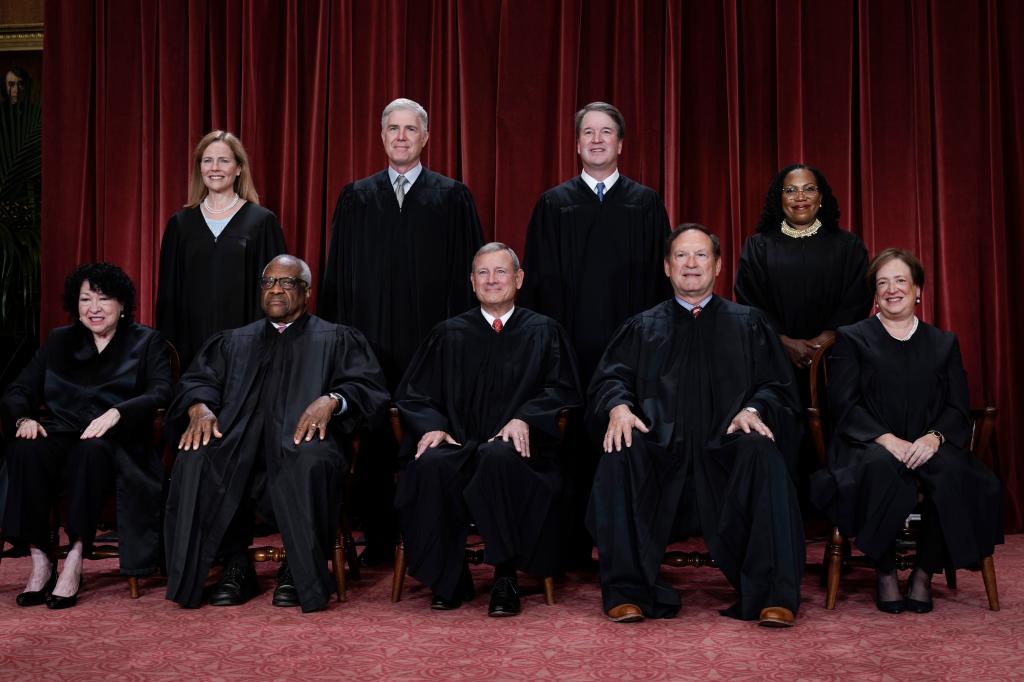US Supreme Court to weigh Tennessee ban on transgender puberty blockers for minors
The US Supreme Court will wade into the pitched battle over transgender treatment for minors during its next term — after lobbying from everyone from the Biden administration to trans actor Elliot Page.
The nation’s highest court agreed Monday to take up a challenge to a Tennessee law that restricts the use of puberty blockers and hormone therapy for minors.
The medical blockers can prevent puberty from taking place, thereby potentially scaling back the need for surgical or hormonal transgender treatment for patients in the future.
They can also be used to treat conditions such as precocious puberty, or when puberty happens too soon.
Critics contend that minors are too young to make a decision about whether they want to undergo transgender treatment for gender dysphoria and could face long-term consequences over the decision.
In 2021, roughly 42,000 children were diagnosed with gender dysphoria, according to database researcher Komodo Health Inc. Between 2017 and 2021,17,683 minors initiated puberty blockers or hormonal treatment, the figures show.
Nearly half of states in the US have enacted similar restrictions to Tennessee’s, and most of them are also facing some sort of litigation. Last month, South Carolina approved a similar bundle of restrictions.
Until now, the Supreme Court has never considered the constitutionality of these bans, and it has rarely taken up cases pertaining to transgenderism. Its next term starts in October.
The Biden administration is arguing that the restrictions flout the Equal Protection Clause of the 14th Amendment.
“Absent this court’s review, families in Tennessee and other states where laws like SB1 have taken effect will face the loss of essential medical care,” US Solicitor General Elizabeth Prelogar wrote in a petition for a review, referring to the Volunteer State’s related legislation known as Senate Bill 1.
“Those with the resources to do so may abandon their homes, jobs, schools, and communities to move to a State where the needed treatment remains available. Others will not have even that option,” Pregolar wrote.
The Tennessee law in question went into effect in July 2023. It also restricts transgender surgeries for minors, but that is not the question at hand in the Supreme Court challenge.
Those who infringe upon the law in Tennessee can be subject to fines of $25,000 as well as other penalties.
Underpinning the challenge are two transgender boys, one transgender girl and a doctor who contended that the policy was unconstitutional.
Initially, a federal court determined the policy was likely unconstitutional and granted an injunction, but a panel on the US Court of Appeals for the 6th Circuit nixed that, prompting an appeal to the high court.
At least 57 transgender individuals such as Page pleaded with the high court to intervene.
Now that the Supreme Court has agreed to take up the case, US v. Skrmetti, oral arguments will likely commence in the fall.
At the moment, the Supreme Court has at least 14 more cases in which it is due to render a decision. The high court is slated to release some decisions from Wednesday through Friday.













